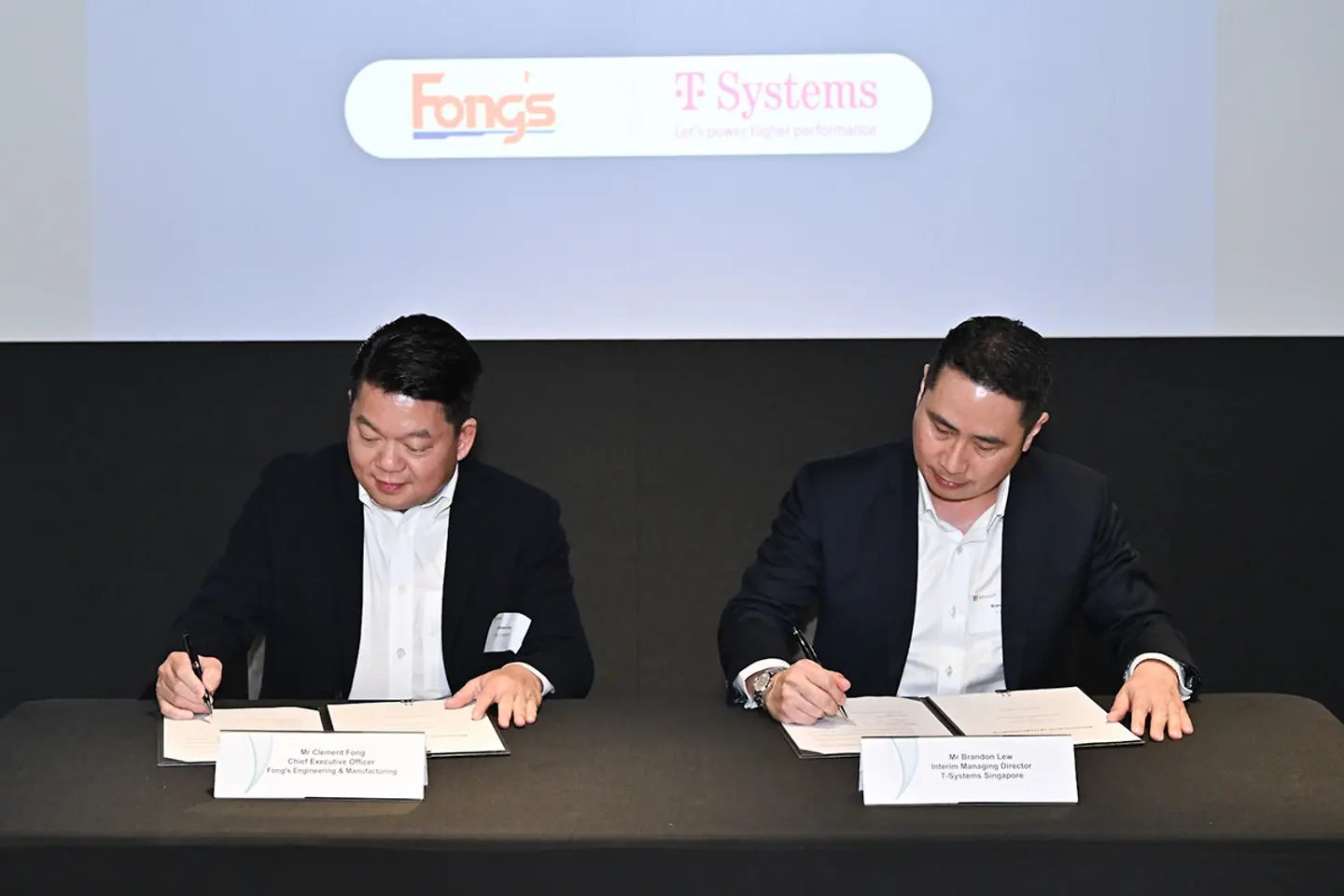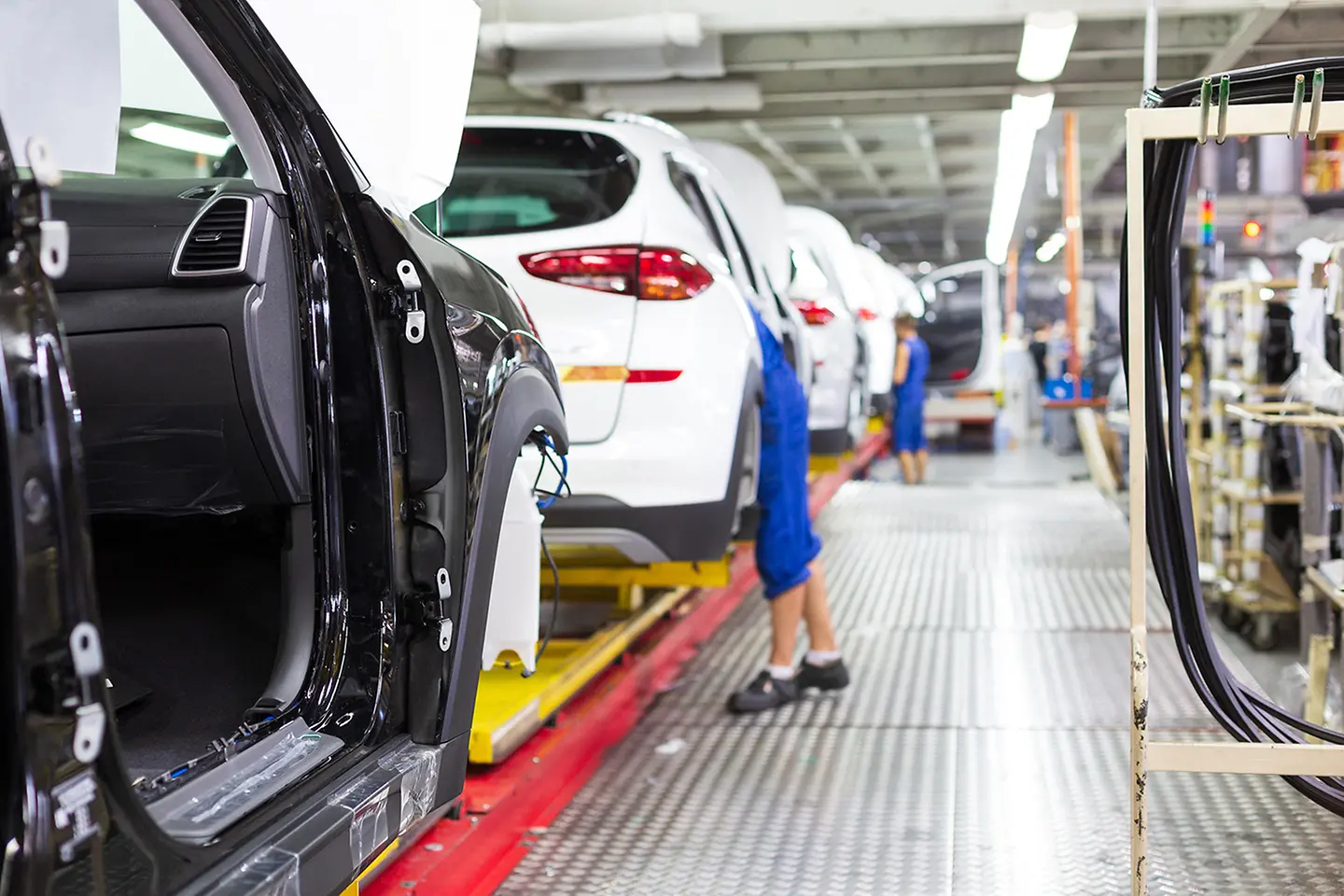
Through digitalisation, SMEs can close the talent and efficiency gap long dominated by big corporations. Using the right tools, companies can now effectively modernise and transform without incurring too much costs.

Amid the COVID-19 pandemic, almost 70% of SMEs in Asia-Pacific (APAC) accelerated their digitalisation efforts with cloud singled out as the top investment priority. This could translate to an average 50% increase in revenue and productivity for SMEs.
The increase in productivity is especially important for manufacturers at a time when margins are getting squeezed due to increased competition and persistently high inflation.
In Singapore, labour costs have risen to US$61,355 per employee, making it hard for manufacturers to stay competitive. In response, the Singapore government introduced the Manufacturing 2030 plan to accelerate the shift towards Industry 4.0. This aims to grow the country’s manufacturing sector by 50% by 2030.
To push Singapore’s manufacturing towards digital transformation, various collaborations between industry agencies and education institutions are being established. One such initiative is the partnership with Singapore Polytechnic to lead Industry 4.0 solutions for SMEs.
Small enterprises themselves are seeing the value of digital transformation. In a 2022 ASEAN SME Transformation Study, 33% of SMEs are projecting their technology spend to grow by 10%. This underscores an investment shift towards digitalisation to stay competitive.
But what exactly is digitalisation and why are SMEs poised to benefit the most from it, especially those in manufacturing?
In a nutshell, digitalisation is the use of digital technologies to transform the operations of a business. This can be to enhance a current business model, unlock new revenue streams and maximising value-producing opportunities.
In the case of manufacturers, digitalisation leverages technologies such as the cloud and artificial intelligence (AI) to transform manufacturing processes. This includes unleashing the power of automation, tapping into the Internet of Things (IoT) and optimising supply chains.
Unlike their bigger counterparts, SMEs are more nimble. These enterprises have fewer legacy IT systems, less complex business structures and manufacturing operational set-ups. This allows organisations to move fast and better adopt new technologies, chief of which are APAC manufacturers.

APAC manufacturers are seeing tremendous value in digitalisation. In a report by Rockwell Automation, 80% of Chinese and 60% of Australian manufacturers are already utilising smart manufacturing on their factory floors.
By enabling smart manufacturing, organisations are able to build resilience, address workforce shortages and unlock agility in today’s fast-paced business environment. To harness the full potential of Industry 4.0, SMEs have to embrace the right set of technologies and digitalisation tools.
In Singapore, Fong’s Engineering & Manufacturing (Fong’s) partnered with T-Systems to help drive the company’s journey towards digital transformation.
This strategic partnership helps Fong’s leverage T-Systems’s industry expertise in cloud, productivity and collaboration tools to digitalise key operations and business functions, a prerequisite towards enabling Industry 4.0 capabilities. One such capability is the ability to build a robust supply chain in today’s dynamic environment.

The supply chain is undoubtedly one area where many inefficiencies lie with the potential for significant optimisation.
Industry 4.0 gives manufacturers real-time visibility across the value chain, allowing them to pinpoint areas that are underperforming. This could include poor production scheduling and inventory mismanagement.
With increased geopolitical movements that spark talks of reshoring production, a survey found that 67% of APAC businesses are looking to change up their supply chains with nearly 40% planning to embrace digital transformation.
By building a modern data warehouse and analytics dashboards, T-System is helping Fong’s to consolidate data from various sources into a single source of truth. Using Microsoft Azure Synapse Analytics and Power BI, Fong’s will be able, upon completion of the project, to consolidate data from various sources, perform advanced analytics and generate insights for better decision-making.
In addition, T-Systems will help Fong’s transform their paper-based workflows into digital processes using Microsoft Power Platform and Sharepoint Online. This will enhance, upon completion, operational efficiency by reducing manual errors while increasing data accuracy.
While optimising the supply chain is critical, digitalisation also enables manufacturers to guard against downtime which can adversely affect production schedules and outputs.

Through digitalisation, companies can harness smart manufacturing capabilities that include IoT which grants insights into the operations of factory machinery. In fact, a digitally enabled factory can enjoy anywhere from 30 to 50% reductions in machine downtime.
However, in today’s interconnected digital world, cyber risk in advanced manufacturing can also lead to downtimes as well. In a Deloitte report, 4 in 10 manufacturers surveyed indicated that their operations were hampered or disrupted by a cyber security incident.
In fact, the APAC region is at the top of the list as the most attacked region in 2022, accounting for 31% of all cyber security incidents. Manufacturers have to take proactive steps to guard against potential downtimes from cyber security threats.
To secure Fong’s from cyber threats, T-Systems utilised comprehensive security solutions like Microsoft Defender. This helps the manufacturer safeguard their data privacy and prevent any unwanted breaches that could cascade into a production floor downtime.
By embracing digitalisation, APAC SMEs can future-proof their operations and capture exciting opportunities. Because of its highly elastic and scalable nature, this can be done in a tailored manner without the need for heavy upfront capital costs.
With T-Systems, manufacturers can begin the journey towards true digital transformation.
Speak with us today to unlock your full potential.